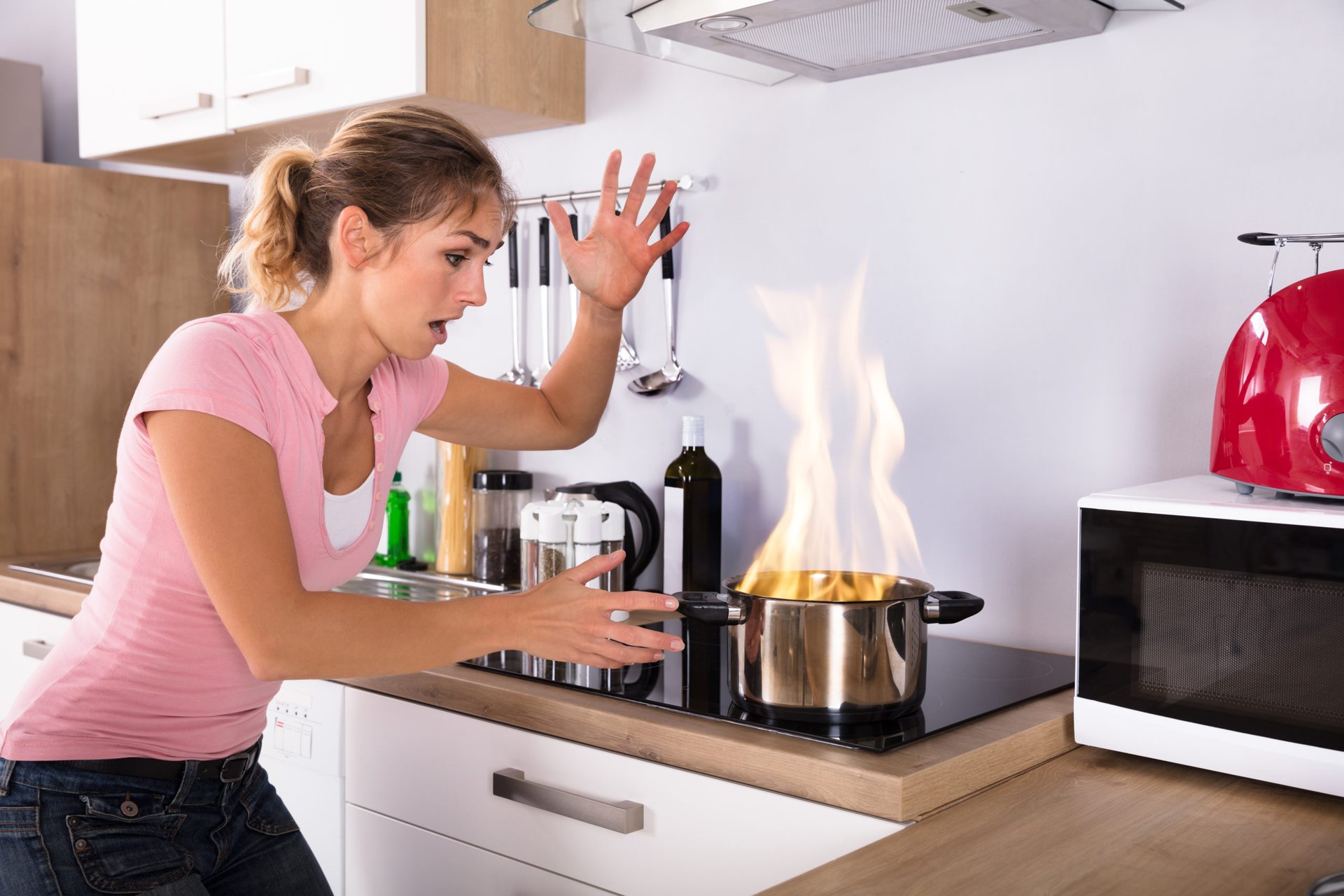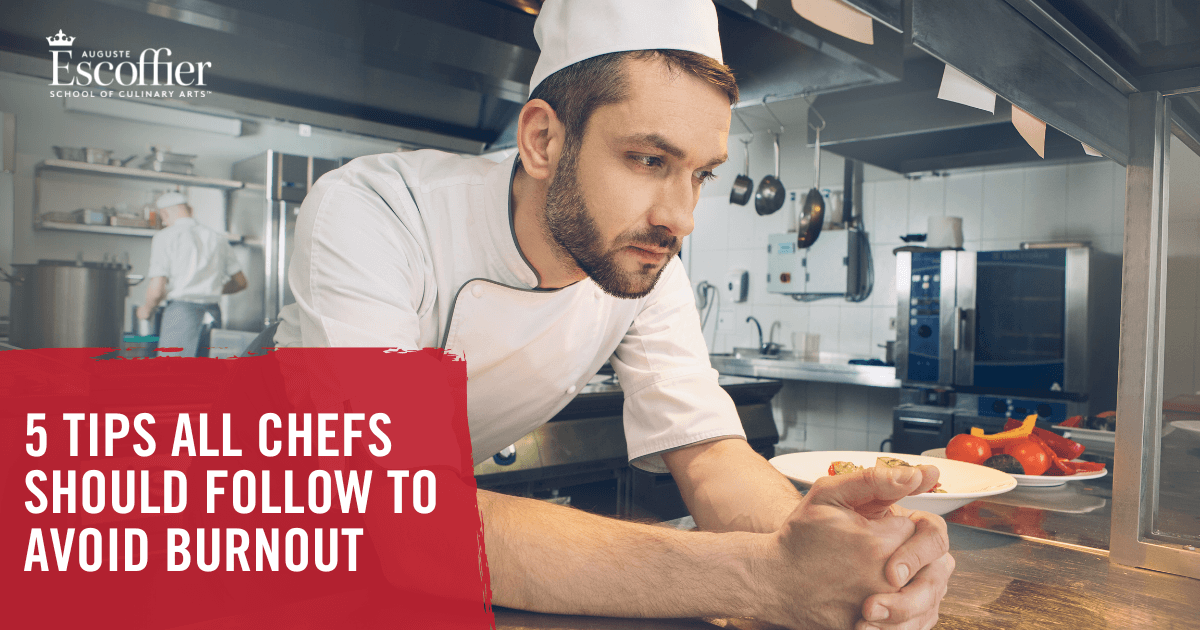Understanding Cooking Burnout

Cooking burnout is a state of emotional, physical, and mental exhaustion related to cooking. It can happen to anyone, regardless of their cooking experience or skill level. If you find yourself dreading meal preparation, feeling uninspired in the kitchen, or experiencing a decline in your overall enjoyment of cooking, you might be experiencing cooking burnout.
Signs and Symptoms of Cooking Burnout
Recognizing the signs of cooking burnout is crucial for taking steps to address it. Here are some common symptoms:
- Feeling overwhelmed and stressed about meal planning and preparation
- Lack of motivation and enthusiasm for cooking
- Feeling bored or uninspired by cooking
- Experiencing a decline in cooking skills or creativity
- Turning to takeout or processed foods more frequently
- Feeling resentful or frustrated about cooking
- Experiencing physical symptoms like fatigue, headaches, or digestive issues
Causes of Cooking Burnout
Cooking burnout can be caused by a variety of factors. Some common causes include:
- Lack of Time:Busy schedules and demanding work-life balance can leave little time for cooking.
- Lack of Motivation:Cooking can feel like a chore, especially if you’re not feeling inspired or energized.
- Lack of Creativity:Cooking the same meals repeatedly can lead to boredom and a lack of excitement in the kitchen.
- Perfectionism:Feeling pressured to create elaborate or gourmet meals can create stress and anxiety.
- Lack of Support:Not having a supportive network of friends or family who share your love of cooking can make it harder to stay motivated.
Impact of Cooking Burnout
Cooking burnout can have a significant impact on a person’s overall well-being. It can lead to:
- Poor Nutrition:Relying on takeout or processed foods can negatively impact your diet and health.
- Increased Stress:Feeling overwhelmed and frustrated by cooking can contribute to stress and anxiety.
- Relationship Strain:Cooking burnout can put a strain on relationships with family and friends, especially if you’re responsible for meal preparation.
- Decreased Enjoyment of Life:Cooking burnout can make it harder to enjoy a fundamental part of life – preparing and sharing meals.
Rekindling the Passion
Rekindling your love for cooking involves reconnecting with the joy and satisfaction it can bring. It’s about rediscovering your passion and finding ways to make cooking a more positive and enjoyable experience.
Strategies for Reigniting Your Love for Cooking
Here are some strategies for rekindling your love for cooking:
- Try New Cuisines:Explore different cultures and cuisines to broaden your culinary horizons.
- Experiment with Ingredients:Get creative with your ingredients and try new flavor combinations.
- Attend Cooking Classes:Learn new techniques, skills, and recipes from experienced chefs.
- Cook with Friends or Family:Share the cooking experience and create memories together.
- Watch Cooking Shows or Read Cookbooks:Find inspiration and learn from the experts.
Setting Realistic Goals
Setting realistic cooking goals is essential for avoiding overwhelm and maintaining motivation. Break down large tasks into smaller, more manageable steps.
- Start Small:Don’t try to overhaul your entire cooking routine overnight. Begin with small changes and gradually build from there.
- Focus on Progress, Not Perfection:Celebrate your successes and acknowledge your progress, even if it’s small.
- Be Kind to Yourself:Don’t beat yourself up if you have a bad cooking day. Everyone has off days.
Mindfulness and Gratitude
Incorporating mindfulness and gratitude practices into your cooking routine can help reduce stress and enhance enjoyment.
- Pay Attention to the Process:Focus on the sights, sounds, and smells of cooking. Engage all your senses.
- Practice Gratitude:Be grateful for the food you have and the opportunity to cook for yourself and others.
- Enjoy the Moment:Don’t rush through cooking. Take your time and savor the experience.
Simplifying the Process
Simplifying your cooking process can significantly reduce stress and make meal preparation more enjoyable.
Meal Planning System

A well-designed meal planning system can minimize cooking time and effort. Here’s how to create one:
- Plan Ahead:Set aside time each week to plan your meals for the upcoming days or week.
- Create a Weekly Menu:Choose a variety of dishes that you enjoy and that fit your dietary needs.
- Make a Grocery List:Based on your meal plan, create a comprehensive grocery list to avoid impulse purchases.
- Prepare in Advance:Chop vegetables, marinate meats, or prepare sauces ahead of time to save time during the week.
Easy and Healthy Recipes
Having a collection of easy and healthy recipes on hand can make meal preparation quick and efficient.
- One-Pot Meals:These meals are simple to prepare and require minimal cleanup.
- Sheet Pan Dinners:Roast vegetables and protein on a single sheet pan for easy cooking and cleanup.
- Salads:Salads can be quick and healthy meals, especially if you have pre-chopped vegetables on hand.
- Soup:Soup is a hearty and comforting meal that can be made in advance and reheated.
Organized Pantry and Refrigerator
An organized pantry and refrigerator can help you find ingredients quickly and reduce food waste.
- Label and Date:Label and date all your food items to help you use them before they expire.
- First In, First Out:Use the oldest items in your pantry and refrigerator first.
- Store Similar Items Together:Group similar items together for easy access and organization.
Seeking Support
Seeking support from others can help you stay motivated and enjoy cooking more. It’s about connecting with others who share your passion for food and creating a supportive network.
Benefits of Seeking Support
- Shared Inspiration:Connect with others who love to cook and share ideas, recipes, and inspiration.
- Cooking Companions:Cook with friends or family and enjoy the shared experience.
- Emotional Support:Share your challenges and frustrations with others who understand.
Finding Cooking Inspiration and Guidance
- Online Communities:Join online forums, groups, or social media communities dedicated to cooking.
- Cooking Classes:Enroll in cooking classes to learn new techniques and connect with other cooking enthusiasts.
- Cookbooks and Magazines:Explore cookbooks and magazines for new recipes and cooking inspiration.
Prioritizing Self-Care
Taking breaks and prioritizing self-care is crucial when feeling overwhelmed by cooking.
- Step Away from the Kitchen:Take a break from cooking and engage in activities that you enjoy.
- Delegate Tasks:If possible, delegate cooking tasks to family members or friends.
- Seek Professional Help:If you’re struggling with cooking burnout, consider seeking professional help from a therapist or counselor.
Making Cooking Fun Again
Making cooking fun again is about reconnecting with the joy and creativity that cooking can bring. It’s about finding ways to make cooking a more enjoyable and fulfilling experience.
Creative Ways to Make Cooking More Enjoyable
- Music, Podcasts, or Audiobooks:Create a playlist of your favorite music or listen to podcasts or audiobooks while cooking.
- Theme Nights:Choose a theme for your meals, such as Italian night, Mexican night, or seafood night.
- Cooking Games:Play cooking games with friends or family, such as “Chopped” or “Iron Chef.”
Cooking Together
Cooking with friends or family can be a fun and social experience. It’s a great way to bond, share recipes, and create memories together.
- Host a Potluck:Have everyone bring a dish to share and enjoy a meal together.
- Cooking Classes:Take a cooking class with friends or family and learn new skills together.
- Theme Nights:Plan theme nights where everyone cooks a dish related to the theme.
Celebrating Successes
It’s important to celebrate your cooking successes, no matter how small. Acknowledge your progress and recognize your efforts.
- Take Pictures:Take pictures of your dishes and share them with friends and family.
- Write a Recipe:Write down your favorite recipes and share them with others.
- Enjoy Your Meal:Take the time to savor your meal and appreciate the effort you put into creating it.
